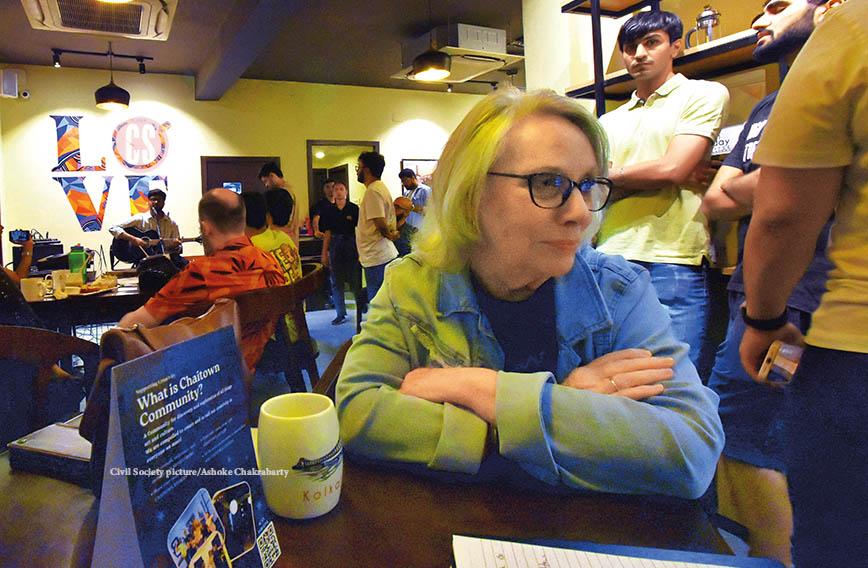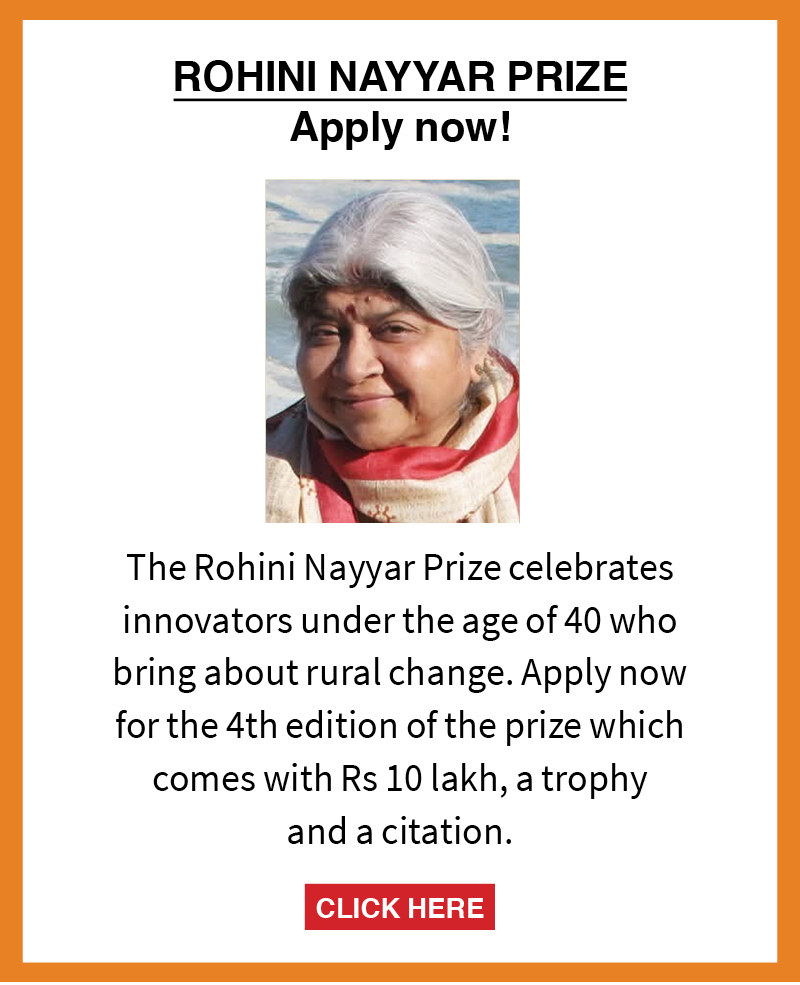
Elizabeth Decker: ‘I wanted to create a place where anyone could stand up and practise their art’
At Chaitown everyone is happily in
Aiema Tauheed, Kolkata
In the bustling loneliness of the city, where do you go to find an audience when you want to read aloud your poetry, play your guitar or sing those songs that you love? If you are in Kolkata, head for the Chaitown Community where creativity is encouraged to find easy expression.
It is now three years since Elizabeth Decker, an American with a long association with India and a fancy for Kolkata, set the Chaitown Community rolling. She was 73 then and seeking to run a small and interesting business.
Chaitown has since caught on as a place where people do their own thing and discover audiences they never thought existed for their talents. Some are aspiring for professional success and there are others who want to just get away from the tedium of their working lives.
While they have a building in Lake Gardens, Chaitown’s events take place all over the city, bringing people together through open mics, musical gigs, fitness sessions, theatre and more. Some of the events are one-of-a-kind experiences.
A recent Bring Your Own Book welcomed book-lovers to share their passion for fantasy literature over chai and food. The Common Table Culture Nights celebrate different cultures from around the world. They also hosted a Digital Detox to help people step away from their screens and enjoy the present moment.
Decker is silver-haired with kind eyes and a warm smile. People take to her and she becomes Aunty Beth to many of the young people who gather.
“I wanted to be among young creative people. I mean, in Calcutta we’ve always had writers and poets underfoot here. I wanted to create a space, an opportunity. A place where anyone could stand up and practise their art without fear or judgement. That’s how we started. And then, slowly, we added more things,” she says.
Born in Darjeeling, Decker has taught English and writing in schools. A mother of three and grandmother to 10, she grew up in a diverse environment. Her parents arrived in India in 1946 with a mission organization.
She attended Woodstock School in Landour, Mussoorie, where she studied alongside classmates of multiple nationalities. Choosing Calcutta felt natural. She had visited the
city as a child and lived here with her
husband for several years.
Chaitown Community has only a small staff. The ‘community’ is ever-increasing. Besides regular performers, there are always different faces adding to the numbers. But who gets to join the community?
On a Saturday evening, we found ourselves at 8th Day Café and Bakery. A girl sat before the mic, her voice steady and resolute, reciting bold Hindi verses on beauty. The crowd listened, some leaning in, others pausing mid-bite. Strangers who had come just for supper stayed to listen, drawn in. For a little while, they were not just visitors but part of something bigger, a community.
 |
“Anyone and everyone can be a part of it. The thing about Chaitown is that we are disgustingly encouraging,” Decker says with a grin.
Tanmoy, an MA student who has been learning classical guitar for four years, was about to take the stage for the first time. After a warm introduction by Chaitown, he walked up to the mic, his hands steady but his nervousness evident. Mid-performance, he took a long pause, and before the silence could settle, the crowd responded with cheers, lifting him up with its energy.
“It was very touching for me, everyone liked what I played,” he said later, with a smile. “Artistes, especially new artistes, could really use spaces like these. In Kolkata or India, I haven’t been able to find a classical guitar culture and hence this is so important. I loved the ambience.”
Delecia, an HR professional and first-time performer, hadn’t planned on taking the stage. But with a little encouragement from her friends at Chaitown, she found herself singing a duet. “I used to sing long ago, they got me to perform again. It was nice getting this sort of encouragement,” she shared shyly.
“It’s just a nice break at the end of the week,” said Aakanksha, an educational psychologist who performs open-mic poetry. “I think a social creative space definitely helps with mental health. Because when you’re working, and especially in my field, which is mental health, it gets very draining. And I forget to take care of my own mental health. So, coming to open-mic spaces, I can just express my emotions with music. I can feel my emotions. I get to connect with joyful individuals. It really charges my battery for the week.”
Decker says these performances often hold deep meaning for many. She recalled a musician at heart who had been pressured into studying medicine. Finding a space to perform at Chaitown, he said, had saved him at his lowest. With the community’s support, he composed an original rap song for Chaitown’s anniversary, now featured on their YouTube channel.
But bringing so many people together frequently is not an easy task. “It started by word of mouth, of course. Just putting out a social media post would not cut it,” says Akash Chakraborty, who handles marketing and social media at Chaitown.
He explains: “We find talent that likes to put the word out. Sometimes, a bona fide performer will show up, and it’ll be on their social media, so by extension, ours as well. Things like that really help."
Thanks to their strong network, cafés often offer their spaces and are willing to pay. “They know that when we walk into a café, we bring 30 to 40 people with us,” Decker explains. “Their business increases and visibility increases. And we’re happy to do that. We feel like it’s reciprocal.” Entry to some events is free and for some a fee is charged.
“Many of our events are pay-as-you-can and so we find that people pay more than they would pay if we had put a price on it, because they want to be a part of it,” she says.
Comments
Currently there are no Comments. Be first to write a comment!





